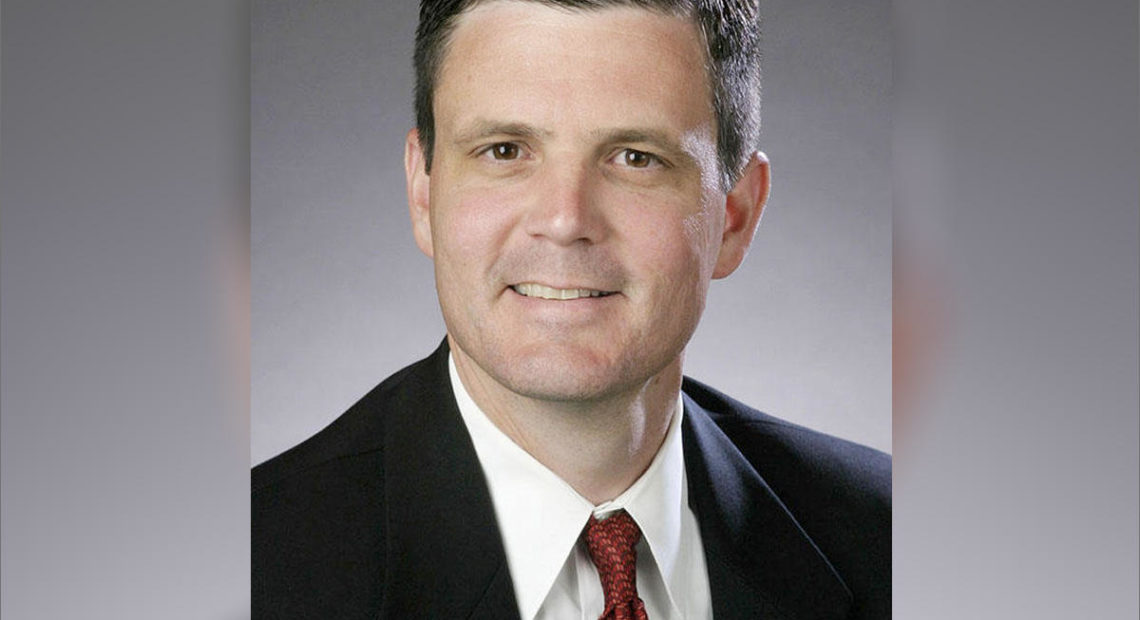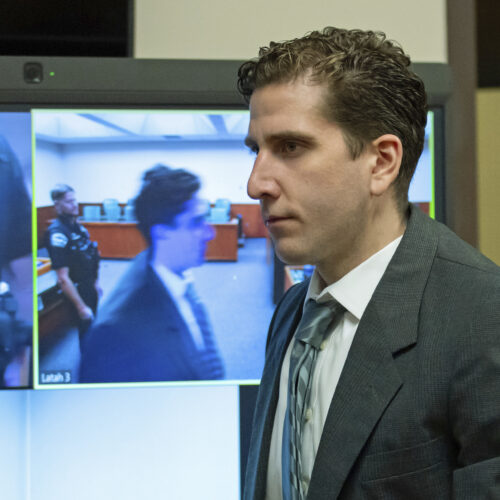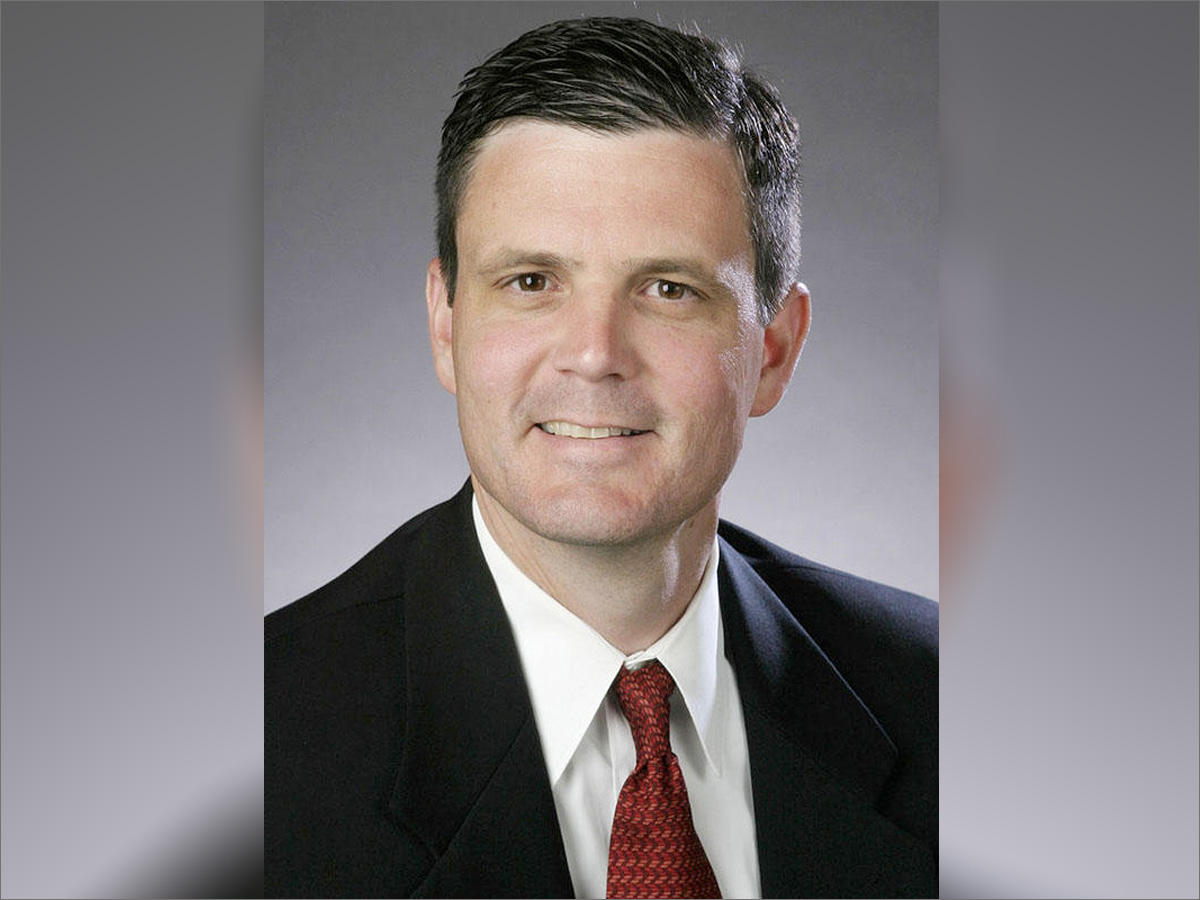
Former State Auditor Sentenced To One Year And One Day In Prison
Former Washington state Auditor Troy Kelley was sentenced Friday to one year and one day in prison and one year of supervised release.
The sentence, handed down by U.S. District Judge Ronald Leighton in Tacoma, was significantly less than the 87 months federal prosecutors had requested, but harsher than the five years probation and six months of home detention the defense had requested.
“I stand before you today as a father and as husband and as a man whose life has been torn to pieces for everyone to see,” Kelley told the judge prior to the sentence being issued. “I want to go back to work, I want to try to help provide for my family, I want to look to the future.” He added that he would never “do anything to make myself vulnerable like this again.”
Kelley has maintained his innocence throughout two trials. His first trial, in 2016, ended with a deadlocked jury, except for an acquittal on charges that Kelley made false statements to the Internal Revenue Service.
Prior to issuing his sentence, Leighton challenged defense attorney Angelo Calfo’s characterization of Kelley’s actions as “more of a contract breach than a theft.”
“Troy Kelley knew what he did was wrong,” Leighton countered. “He knew what he was doing was illegal, his actions to hide his actions speaks volumes of his intent and … there has been no humility.”
Kelley, a Democrat, was convicted in December 2017, following his second trial, of possession of stolen funds, making false declarations and filing false tax returns. He was acquitted of five money laundering charges and a conviction for tax obstruction was later dismissed.
The case against Kelley stemmed from his work in the real estate services industry during the pre-Great Recession bubble prior to his election as state auditor in 2012.
During the nearly two hour sentencing hearing, Leighton said he was focused primarily on the possession of stolen funds, not the tax evasion or false declarations.
“Mr. Kelley would not have ever been sentenced to jail time for the tax evasion,” Leighton said. “The scheme to promise refunds, not performing that task and hiding that fact, is what’s in my mind gonna determine the sentence.”
From the early-to-late 2000s, Kelley ran a small real estate services firm called the Post Closing Department that tracked property closings to ensure that banks cleared their lien after a loan was paid off. This is known as a reconveyance.
Kelley’s clients were title and escrow firms. They would collect a reconveyance fee of between $100 and $150 at closings and then forward that fee to Kelley’s company.
According to federal prosecutors, Kelley was entitled to regain a $15 to $20 tracking fee, but was obligated to refund the remaining funds to borrowers if they weren’t needed to complete the reconveyance. In most cases, the banks cleared their interest in a property without the Post Closing Department having to intervene.
But prosecutors said Kelley often retained the entire fee unless customers complained, in which case he would issue a refund.
Kelley’s defense argued that home sellers agreed to pay the fees and got a service in return, and therefore no theft or possession of stolen money occurred.
Kelley, who did not testify at his trials, also maintained he was entitled to keep the fees and that his conduct was consistent with industry practices at the time.
In making the case for leniency, Calfo sketched a portrait of Kelley as a “dedicated” husband and father, member of the National Guard and “civic-minded” member of the community.
“I just think the need for a harsh sentence doesn’t exist,” Calfo told the judge.
Prosecutors countered that Kelley engaged in a fraud and cover-up that spanned a decade and involved more than 10,000 borrowers who did not get refunds they were owed. Assistant U.S. Attorney Andrew Friedman also argued that Kelley’s background–as an attorney, former Securities and Exchange Commission employee and tax expert–made him more accountable for his actions.
“Mr. Kelley understaood the meaning of the rule of law and his decisions to violate that, to lie, to steal, to cover up is more serious because of that,” Friedman said.
Prior to issuing his sentence Leighton, the judge, called it “a sad and tragic day” and said “this was in one sense a crime of small consequences.” But Leighton also said, “I think he wanted money, he found a vehicle to acquire wealth and what he did was known by him to be wrong.”
The judge rejected the government’s request that Kelley forfeit $1.4 million, the amount the prosecution said reflected the amount of stolen money Kelley possessed. However, a restitution hearing is scheduled for September 21.
The defense said Friday that Kelley plans to appeal his convictions and may seek bail, in lieu of prison, pending that appeal.
Copyright 2018 Northwest News Network
Related Stories:

Walla Walla got a Denny’s. Some of its staffers got second chances
Gentry Thorpe, a cook at the new Denny’s in Walla Walla. He’s grateful for employers that practice second chance hiring. (Credit: Susan Shain / NWPB) Listen (Runtime 3:41) Read It

Trial for Bryan Kohberger, man accused of University of Idaho killings, moves to Ada County
Bryan Kohberger, who is accused of killing four University of Idaho students in November 2022, walks past a video display as he enters a courtroom to appear at a hearing

Clear Your Record Of Simple Possession? Not That Easy But You Should Try
In February 2021, the Washington State Supreme Court ruled that the State’s felony drug possession statute was unconstitutional. This decision, known as State v. Blake, has far-reaching impacts that affect anyone previously convicted of simple possession of a controlled substance.
















